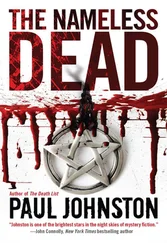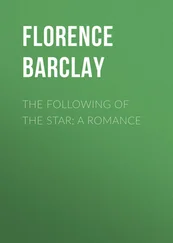Maureen Johnson - The Name of the Star
Здесь есть возможность читать онлайн «Maureen Johnson - The Name of the Star» — ознакомительный отрывок электронной книги совершенно бесплатно, а после прочтения отрывка купить полную версию. В некоторых случаях можно слушать аудио, скачать через торрент в формате fb2 и присутствует краткое содержание. Жанр: Старинная литература, на английском языке. Описание произведения, (предисловие) а так же отзывы посетителей доступны на портале библиотеки ЛибКат.
- Название:The Name of the Star
- Автор:
- Жанр:
- Год:неизвестен
- ISBN:нет данных
- Рейтинг книги:4 / 5. Голосов: 1
-
Избранное:Добавить в избранное
- Отзывы:
-
Ваша оценка:
- 80
- 1
- 2
- 3
- 4
- 5
The Name of the Star: краткое содержание, описание и аннотация
Предлагаем к чтению аннотацию, описание, краткое содержание или предисловие (зависит от того, что написал сам автор книги «The Name of the Star»). Если вы не нашли необходимую информацию о книге — напишите в комментариях, мы постараемся отыскать её.
The Name of the Star — читать онлайн ознакомительный отрывок
Ниже представлен текст книги, разбитый по страницам. Система сохранения места последней прочитанной страницы, позволяет с удобством читать онлайн бесплатно книгу «The Name of the Star», без необходимости каждый раз заново искать на чём Вы остановились. Поставьте закладку, и сможете в любой момент перейти на страницу, на которой закончили чтение.
Интервал:
Закладка:
As I walked back through the galleries, I saw Boo on the phone, pacing. She never spoke to anyone that intently. Then she hung up and dodged around a group of tourists and headed toward the lobby. Little threads began to connect themselves in my head. I didn’t know what this all added up to, but something was coming together. A strange and sudden impulse came over me.
While we were technically in class, Mark wasn’t watching us—and when the class was over, we were free to leave on our own. And I couldn’t stay here anymore, anyway.
So I followed her.
She stood on Trafalgar Square, just under the museum steps, and made another phone call. I watched this from above, from the raised entrance of the museum. Then she hurried to the entrance of Charing Cross Tube. I went down the stairs after her, tapping my Oyster card on the turnstile, and followed her down the escalators to the tracks. She got on a Northern Line, the black line, and rode the train two stops. At Tottenham Court Road, she switched to the Central Line going east—that was the way back to school. Our stop was Liverpool Street. But at Bank, she switched again, to the District Line, still going east. To keep out of her sight, I had to stay at the far end of the cars and hope she wasn’t paying too much attention. Luckily for me, Boo was Boo, head down, looking at her phone, adjusting her music.
She got off at Whitechapel and stepped out onto the incredibly busy road full of market stalls and small restaurants of all kinds—Turkish, Ethiopian, Indian, American fried chicken. Across the street was the Royal London Hospital—a name I vaguely recognized from some news report. Whitechapel was Ripper central. I let her get a little bit ahead of me, but not too far or she’d be swallowed up in the crowd. I had to push my way along to keep her in my sights, weaving around the vendors who sold shopping bags and African masks and umbrellas. It was a busy Saturday afternoon, and the street was packed. The air was thick with the smells of shops selling grilled halal meat and spicy Caribbean chicken and goat. I got stuck several times behind people with bags or Styrofoam containers of food and had to use all the meager skills I had developed dodging hockey balls in the goal to get through. (Despite the fact that Claudia told me every day that dodging the balls was not the point of being in goal, it was the only lesson I learned.)
Boo walked quickly, turning off Whitechapel and heading down a side road, turning again and again, so quickly that within five minutes I knew I could never find my way back on my own. Boo began to wave frantically at someone over in the playground across the street. I looked over and saw a young woman dressed in a brown wool suit. It looked like an old-fashioned kind of uniform—a female soldier’s uniform, but not a modern one. Her dark brown hair was tightly made up in a retro style, medium length and done up in tight curls around the edges, under her hat. She was picking up trash from the playground and throwing it away. No one got that dressed up in some kind of 1940s outfit to clean streets.
Boo glanced both ways and ran across the street, barely missing a car. I stepped behind a big red mailbox and watched her talking to the woman, guiding her over to a more secluded spot. After a minute or two, a police car came down the street. It slowed and pulled up next to the playground. Out of it stepped the young policeman from the day of the murder, the one Jazza thought was a reporter.
I felt myself go cold all over.
“What the hell?” I said out loud.
Now it was the three of them—the woman in the brown wool uniform, the young policeman, and my roommate—all in a very animated conversation. It was like the entire world was colluding to make me feel insane, and it was doing a really good job .
I tried to make sense of the scene. The policeman had to be a real policeman. If he was a reporter, as Jazza suspected, he couldn’t go around in a disguise all the time . He wouldn’t have a police car. Boo had come into the school right after the murders. Boo went everywhere I went. As for the woman in the uniform, I had no idea who she was, and I didn’t care. The fact that Boo and the policeman were talking together in secret was enough.
And then, one of the many other people coming down the street walked through the woman in the uniform.
Through her.
In response to this, the woman simply turned and glanced over her shoulder with a kind of “Well, that was rude” look. This was all I needed to see. There was something wrong with me, no question. I couldn’t stay there hiding behind a mailbox. The little green man came up on the street-crossing sign, so I crossed, my head swimming. I walked right at them. I needed help. I could feel my knees weakening with every step.
“There’s something wrong with me,” I said.
The three of them turned and stared at me.
“Oh, no,” the policeman said. “No . . .”
“I didn’t!” Boo said. “She must have followed me.”
“Are you all right?” the woman asked, striding toward me. “You need to sit down. Come on, now.”
I allowed the woman to guide me to the ground. Boo came over and squatted by my side.
“It’s fine, Rory,” she said. “You’re okay.”
The police officer kept back.
“She needs our help,” Boo said to him. “Come on, Stephen. It was bound to happen.”
The woman in the uniform was still hanging over me.
“Just breathe evenly,” she said. She had one of those voices that you don’t argue with, or even question.
“You’re fine, Rory. Honestly. You’re fine. We’re going to help you. Aren’t we? ” Boo looked at Stephen as she said this.
“And do what exactly?” he finally said.
“Take her back to yours,” Boo said. “Talk to her. Jo, help me get her up.”
Boo helped me up on one side while the soldier woman took the other. Boo did most of the lifting. The policeman, Stephen, opened the door to the police car and waved me into the back.
“It wasn’t supposed to happen like this,” he said. “But you had probably better come with us now. Come on.”
“Give her a paper bag to breathe into,” the woman in the uniform called to Boo. “Works wonders.”
“I’ll do that,” Boo called. “See you later, yeah?”
As a small crowd of interested onlookers stopped to watch, I allowed Boo and the policeman to put me in the back of the police car.
20
SO I GOT TO RIDE IN A LONDON POLICE CAR.
“My name is Stephen,” the policeman said as he drove. “Stephen Dene.”
“Rory,” I mumbled.
“I know. We met.”
“Oh, yeah. Are you actually a cop?”
“Yes,” he said.
“So am I,” Boo added.
Stephen was taking us right into the center of town. We went around Trafalgar Square, weaving our way around double-decker buses and cabs. We passed the National Gallery, where my day had started, and continued up the road, coming to a stop just a short distance beyond it. Stephen and Boo got out, and Stephen came and opened my door. He offered me his hand to help me out, but I rejected it. I needed to walk on my own. I needed to concentrate on a task, or I would lose my rapidly slipping grasp on reality. We were on a very busy street, full of theaters and shops and people.
“It’s this way,” Stephen said.
They guided me to a small alley. There was a pub hidden down there, and the stage exit of a theater. Then we passed under a brick arch, and the alley got narrower, and suddenly we were on a street that was like something out of Dickens and really out of place with the area around it. Cars couldn’t come down this way—the path was only about six feet wide. The houses were all made of brown brick, with old gaslights in front, huge windows with black panes, and shiny black doors with big brass knockers. You could tell that it used to be a little street of shops, and these were all the old shop windows. The sign on the wall said Goodwin’s Court.
Читать дальшеИнтервал:
Закладка:
Похожие книги на «The Name of the Star»
Представляем Вашему вниманию похожие книги на «The Name of the Star» списком для выбора. Мы отобрали схожую по названию и смыслу литературу в надежде предоставить читателям больше вариантов отыскать новые, интересные, ещё непрочитанные произведения.
Обсуждение, отзывы о книге «The Name of the Star» и просто собственные мнения читателей. Оставьте ваши комментарии, напишите, что Вы думаете о произведении, его смысле или главных героях. Укажите что конкретно понравилось, а что нет, и почему Вы так считаете.









